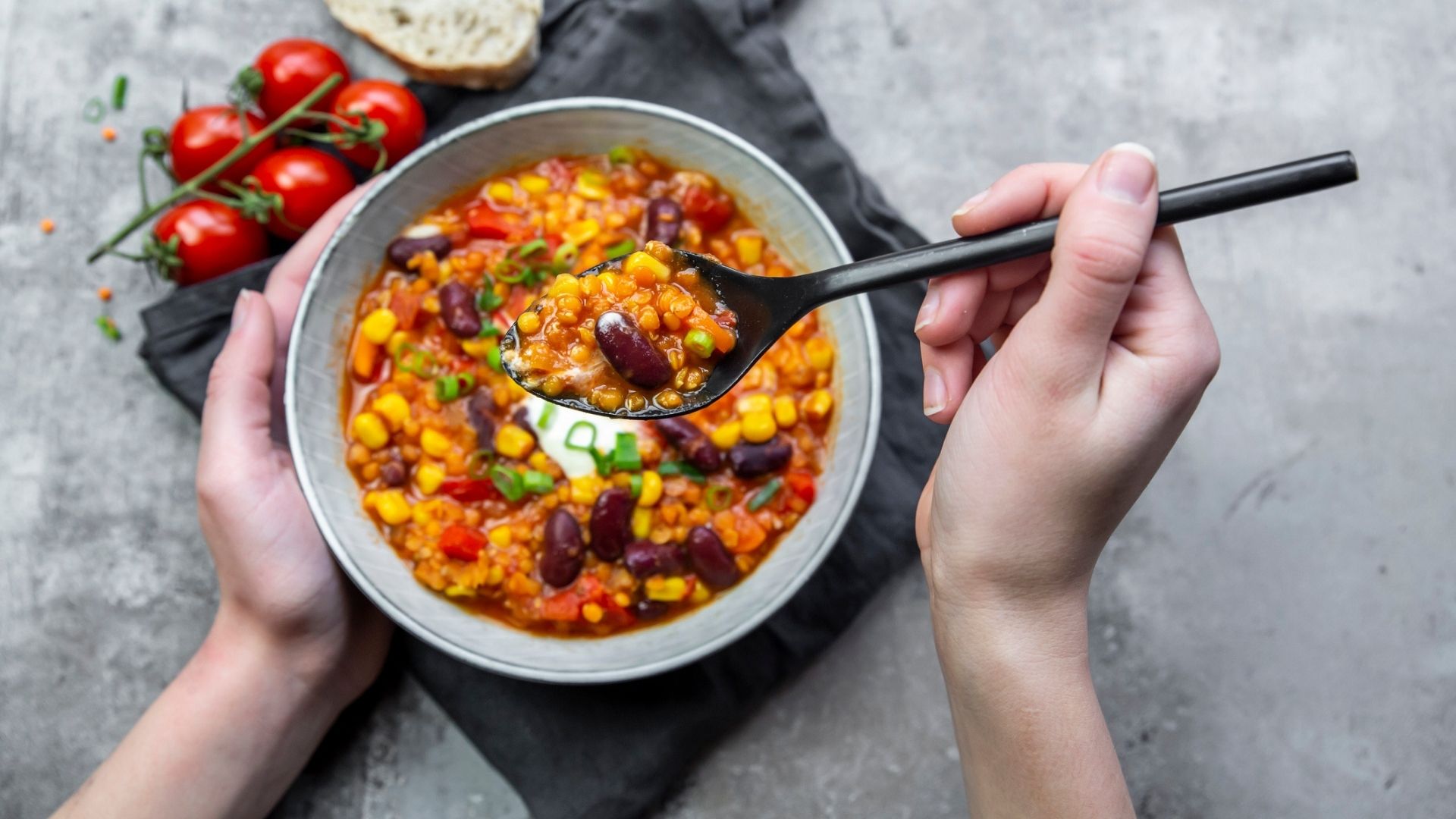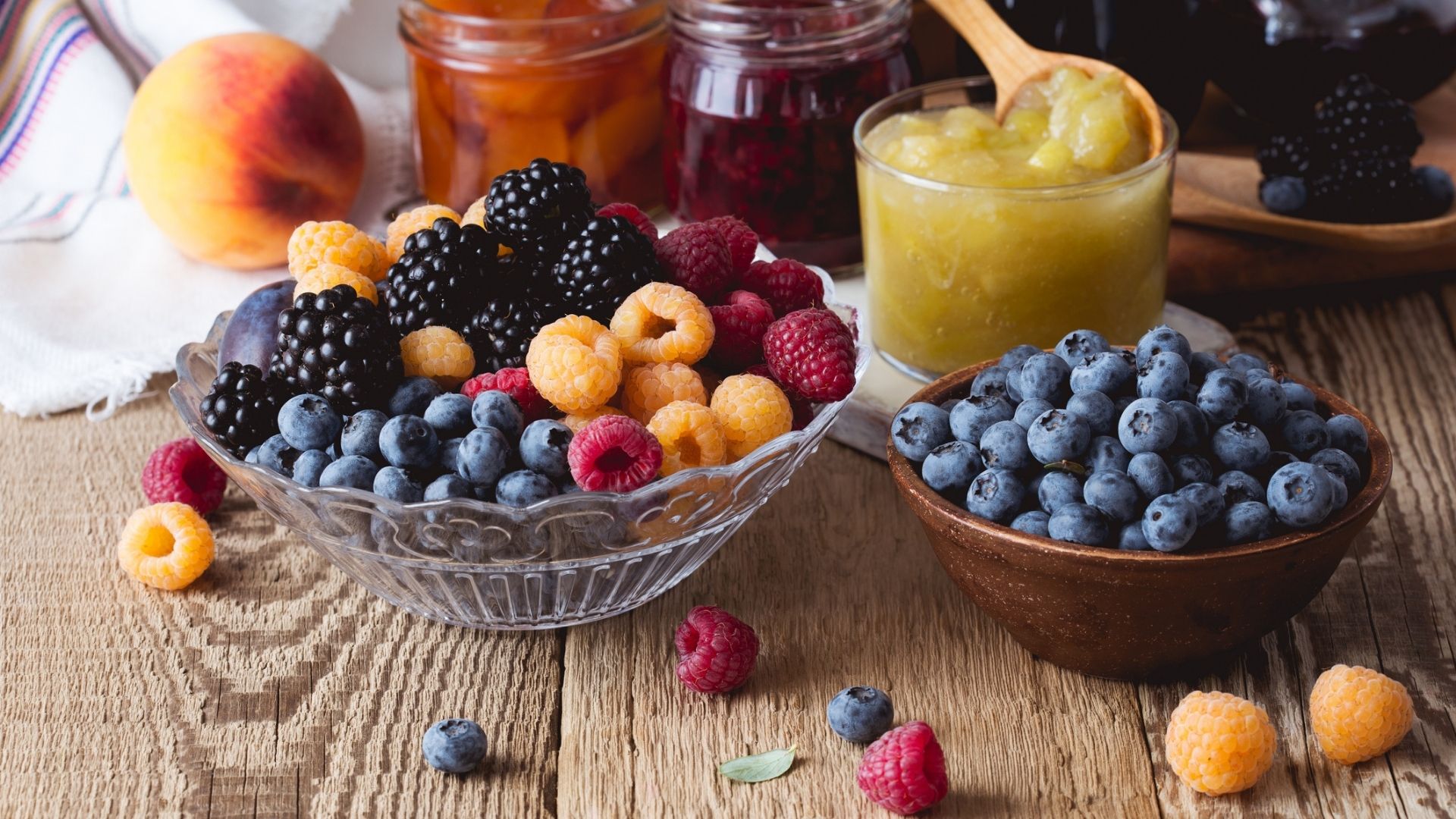Should you be eating the same thing every day?
Eating the same thing every day? Here's what a nutritionist wants you to know about changing your habits for the better


If you're stuck in a cycle of eating the same thing every day, you're not alone. Many of us eat the same foods, and even the same meals, day after day without even being aware of it.
Being too busy to plan meals, not having enough time to shop for ingredients, or being too tired to think up something new and exciting to cook at home are just three of the most common reasons we stick to the dishes that we know and love. Naturally, being on a strict diet plan will also push you to choose the same foods again and again.
But if you're not on a plan like the ketogenic diet or the Cambridge diet and are just looking to have a healthy diet, should you be eating the same thing every day? Here, a nutritionist weighs in on the debate.
Should you be eating the same thing every day?
There are certainly advantages and disadvantages to eating the same thing every day. "It allows us to build habits around our meal timing and we'll expect to be hungry at certain times, like after exercise, at points in our work schedule and around social gatherings," explains nutritionist at Lifesum, Signe Svanfeldt.
"Humans are used to habits. For example, it's very common to eat exactly the same breakfast every day as we create a habit around the start of the day. Eating one similar meal each day, as long as it's nutrient-rich and contains, for example, whole grains, vegetables, fruits, nuts, or seeds, can be healthy for us," she says. "We know how our bodies will react to the meal and can give us a good start to the day, while reducing hunger for longer."
However, she adds, there are some cases where eating the same thing every day is problematic, like when it becomes a form of disordered eating or when you become at risk of a nutrient deficiency.

Is it bad to eat the same thing every day?
If we eat the same thing every day, there won't be any variation in nutritional intake and that's where the habit becomes a problem. "There will probably be nutrients that are missing from those meals, which in time will most likely lead to nutrient deficiencies," Svanfeldt explains. There's also the chance you're eating more than enough of one nutrient, like too much omega-6, which can have negative effects.
Sign up to our free daily email for the latest royal and entertainment news, interesting opinion, expert advice on styling and beauty trends, and no-nonsense guides to the health and wellness questions you want answered.
So while it's not objectively bad to eat the same thing every day if you've developed a healthy eating routine, she says, it's "by eating a varied, balanced, and nutrient-rich diet in line with our energy requirements that we tend to get all the nutrients we need."
This diet needs to include healthy amounts of carbohydrates, high-fiber foods, healthy fats, and plenty of vitamins and minerals. It also needs to include protein, which is often harder to consume to enough of if you're only eating one source - like chicken or soy-based meat alternatives.
How to make it work for you
Eating the same thing every day, especially during busy periods or if you have specific goals like getting into a calorie deficit, is undoubtedly easier than coming up with new and exciting meals every time you step into the kitchen.
If you have the same meals on rotation and you're happy that way, but want to make sure you're getting all the nutrients you need, consider the ways you can include more into your eating plan, Svanfeldt suggests.
1. Make simple swaps
Getting more nutrients could be as easy as swapping out foods lower in nutrients in place of ones that offer more nutritional value.
"Swap refined grains like white rice, plain white bread and pasta, to whole grains like brown rice, whole grain bread and whole grain pasta," she says. While there's nothing 'bad' about these carbohydrates' white flour versions, the whole grain ones offer more fiber, protein, and minerals like zinc and magnesium.
Then if you're eating the same thing every day, look at the vegetables you're eating. "Swap lettuce and cucumber, which mostly contain water, to vegetables richer in nutrients like broccoli, cauliflower, kale and cabbage." Leafy greens like these have significantly higher levels of fiber in them, which according to research by Purdue University, are more likely to keep you fuller for longer as well as aid digestive health, since fiber is one of the most filling macronutrients.
2. Add some legumes
Simply adding legumes into your diet can drastically increase the your daily nutritional intake, particularly when it comes to fiber and protein.
"Add some legumes like beans and lentils to your 'normal' meals," Svanfeldt says. "Adding them to a bolognese, for example, provides extra fiber, vitamins and minerals." They also make for a great source of vegan protein, so you could always swap out any meat-based protein sources one day, if you fancy a change.

3. Add some nuts and seeds
Healthy fats, otherwise known as unsaturated or polyunsaturated fats, are essential in our diets. They're a source of essential fatty acids, a report in association with Harvard School of Public Health reminds us, which the body doesn't make itself and help us absorb important fat-soluble nutrients like vitamin A, D, and E.
"Add some nuts and seeds to salads to get some healthy fats, minerals, and vitamins," Svanfeldt says, along with foods high in these particular types of fat - like avocados or the aptly-named fat bombs you can make at home.
4. Make use of protein powder
The health benefits of protein powder are famous - and not just for those who hit the gym. We all need protein in our diet, the NHS and CDC confirms, in order to maintain healthy bones and teeth, for muscle growth and repair, and to stay full throughout the day.
Most people, unless they're specifically looking to grow muscle, will need 0.75g per kilo of bodyweight. So unless your daily meals already contain healthy helpings of protein-rich foods, one of the best protein powders can come in handy. Each serving normally has between 20 to 30g of protein per serving, which can make up a significant portion of the daily recommended amount.

5. Add breakfast toppings
Whether you're a fan of overnight oats or toast, just adding fruit to your breakfast alone can be a huge game-changer in improving your nutritional intake if you're stuck eating the same thing every day.
"Add some fruit or berries to your breakfast porridge or yogurt," nutritionist Svanfeldt says.
6. Change your desserts
As delicious as they are, desserts made up of high-sugar and high-saturated fat ingredients won't be beneficial for increasing nutrient intake. While some point to alternatives like healthy chocolate or high protein ice cream as alternative ideas form those eating the same thing every day, there's nothing wrong with having a sweat treat after dinner - just add to your plate.
"To increase your intake of vitamins and minerals, eat some fruit salad alongside your dessert after your main meals and be sure to vary the type of fruit you're eating," she says.

Grace Walsh is woman&home's Health Channel Editor, working across the areas of fitness, nutrition, sleep, mental health, relationships, and sex. She is also a qualified fitness instructor. In 2025, she will be taking on her third marathon in Brighton, completing her first ultra marathon, and qualifying as a certified personal trainer and nutrition coach.
A digital journalist with over seven years experience as a writer and editor for UK publications, Grace has covered (almost) everything in the world of health and wellbeing with bylines in Cosmopolitan, Red, The i Paper, GoodtoKnow, and more.